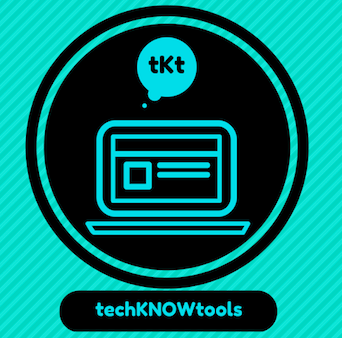“I don’t care who sees or reads what I post online. I am an open book — I’ve got nothing to hide.”
Have you heard this before? This is a common response I usually hear when talking with a students, staff, and faculty in higher ed about their personal data and privacy online. Not all take this stance; however, most feel like it is almost too late to take back what is already available and online — this includes their identification, their behaviors, and more. Have we past the point of no personal data return for what we share online? Are there things we should be thinking about our digital behaviors? Have we thought about how to optimize privacy on these portable computers we bring everywhere — our phones? Is digital privacy possible?
This is a topic I’ve written and spoke about before, as I often feel caught in the privacy paradox in my own digital life. Earlier this year I have began auditing where and how I take up digital real estate. I don’t think giving away our personal data for a “free service” or online account is a fair trade. I have thought more about the fine print in the terms of services for a number of my social media and digital accounts, especially controlling who can collect my data and in “opting out” to control who might use my personal information. This is really important as we see more companies gobble up social media sites and grow their own data collection business based on online information they can find — I’m looking at you Facebook and Google. Whether you share a product on Instagram or tweet about an event, these companies are interested in scooping of this information.

Flickr image c/o Fabian https://www.flickr.com/photos/snapsi42/3925435964/
I just finished reading Shoshana Zuboff ‘s latest book, The Age of Surveillance Capitalism: The Fight for a Human Future at the New Frontier of Power, where she defines surveillance capitalism as “a new economic order that claims [private] human experience as free raw material for hidden commercial practices of extraction, prediction, and sales.” This is directly connected to our digital behaviors, such as our clicks, views, impressions, and even who we are. We share a vast amount of information accessed through our social media accounts, mobile apps, digital platforms, and smart devices — ask your personal digital assistant, Alexa, Siri, and/or Google Home all about it.
In the privacy camp, you can find a number of postsecondary colleagues and learners who are concerned about protecting their personal data and digital information. Similar to others online, most want to know how to maintain digital control of their data and manage their online reputation. Just over 60% of Americans WOULD LIKE to do more about their privacy; however, their social media use is mostly unchanged since 2018 and I suspect most would value the cost of privacy at $0. Do you think people would pay to protect their information? Who would pay to use Instagram, Facebook, Twitter, etc. if it meant more control of who uses their data? I have my doubts that many would actually pay to use apps and social technologies.
Last year, negative impacts of the personal digital life included connectedness overload, trust tensions, personal identity issues, and failing to focus. Privacy, data collection, and surveillance are loaded issues. They are not issues we can tackle on our own. It can be so overwhelming for any one of us to deal with. This needs to be a collective movement for change in society — this might include efforts to push for accountability from technology giants, pushing for regulation, demanding specific privacy standards, and encouraging more of us to change our own behaviors so our actions are not feeding into the business opportunities of surveillance capitalism and data collection. We need to do more than just secure our own data. We need to work on ways to secure all of our personal data and identify standards that block opportunistic actions from technology companies.
Choosing to not use these tools, devices, or platforms is not a viable option to solve this problem. Data security and information collection impacts everyone. Whether you are active on a digital platform or opting out, there are pieces of data and information connected to you in some shape or form. Surveillance and data collection is so ubiquitous that we often take it for granted (Lewis, 2017). Privacy is less of a paradox, and more of a fact of life, whether we like it or not:
“We can’t buy rooms at the panopticon hotel and then complain about the surveillance.” The internet cliché “You are the product” is wrong, argues @DKThomp. We are neither products nor workers in surveillance capitalism’s quest for data. We are a passive source of raw material—a field to be harvested, or a mountain to be strip-mined. To counter the “nothing to hide” quote that started this post, Zuboff thinks: “If you have nothing to hide, then you are nothing.”
Take a listen to the Crazy/Genius podcast episode to hear more of their conversation: Why Should We Care About Privacy?
Want to hear more about privacy, data and surveillance? Check out these past podcast episodes:
- Mozilla’s IRL Podcast, Season 1: Ep 1. All Your Data Are Belong to Us & Season 1: Ep 5. I Spy with My Digital Eye
- Hackable Podcast: Ep. 05: Camera Creepers & Ep. 20 Digital Breadcrumbs
- Note To Self: The Privacy Paradox – 5-Day Challenge
- Reply All: #18 Silence and Respect, #38 Undo, Undo, Undo, & #109 Is Facebook Spying on You?
- BreakDrink: #10: Have You Read _____ “Privacy” Policy Lately?
References:
Lewis, R. (2017). Under surveillance: Being watched in modern America. Austin, TX: University of Texas Press.
Zuboff, S. (2019). The age of surveillance capitalism: The fight for a human future at the new frontier of power. New York, NY: PublicAffairs.

1 thought on “Under Surveillance: Privacy, Rights, and Those Capitalizing On Us”